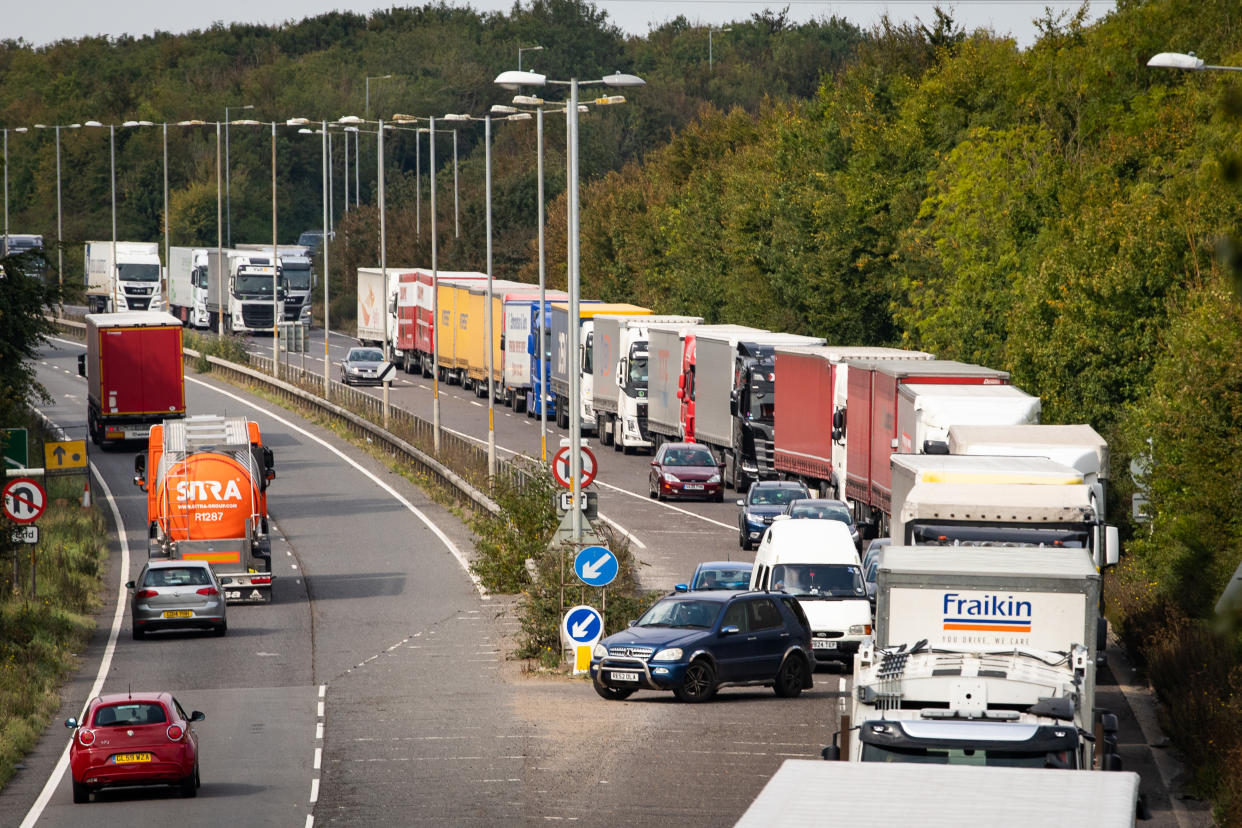Brexit: Government warns of 7,000-truck-long queues at Dover

Lorries exporting goods to the EU could be left jammed in 7,000-truck-long queues in Kent, facing two day delays after the Brexit transition period ends.
A letter to the freight industry from cabinet minister Michael Gove has made the stark warnings, according to a BBC News report.
Imports will also be disrupted in January after the transition period expires at the end of the year.
A spike in coronavirus cases over the winter could also lead to absences of port and border staff.
Gove, who is responsible for no-deal planning, has set out the “reasonable worst-case scenario” to logistics groups and will outline the details in the House of Commons today.
Watch: What is a no-deal Brexit and what are the potential consequences of it?
The government stresses this is not a forecast but an example of what could be reasonably expected.
In the worst case scenario there may be “maximum queues of 7,000 port bound trucks in Kent and associated maximum delays of up to two days.”
READ MORE: Germany's EU minister asks UK to ‘stop the games’ over Internal Market Bill
“Both imports and exports could be disrupted to a similar extent,” says the cabinet office document seen by the BBC.
The major delays will be caused by up to two thirds of freight trucks travelling to the EU being unprepared for new border controls. Up to half of the disruption could be on the busiest “short straits” routes — Dover to Calais and in the Eurotunnel.
From 1 January 2021 the EU is expected to stop all freight without the correct documentation.
The delays could last for three months or longer.
Watch: 99 days until the end of the transition period
There are also concerns that France will impose strict passport checks known as Schengen controls at Dover and the Eurotunnel.
The government hopes the stark warning will encourage traders to get their documentation ready in time, irrespective of whether or not there is a deal in the UK-EU trade negotiations.
READ MORE: Boris Johnson unveils new rules to combat coronavirus second wave
If there is no trade deal agreed hauliers would have to rely on special permits rationed by the Department for Transport. But the freight industry has raised concerns that the government does not have effective plans and systems in place to deal with post-Brexit changes.
The government claims in its letter that it will introduce a “Smart Freight” IT service to enable drivers and hauliers to complete a border readiness check.
In response to the leaked document a UK government spokesperson said: "With just 100 days to go until the end of the transition period it's vital that businesses prepare now for new rules that will come into force at the end of the year, so that they can hit the ground running on January 1 2021 and seize new opportunities.
"As a responsible government we continue to make extensive preparations for a wide range of scenarios, including the reasonable worst case. This is not a forecast or prediction of what will happen but rather a stretching scenario."


